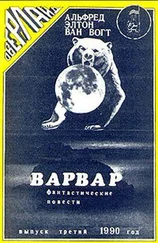Who has not read those novels in which, on account of a word omitted, of eyes that did not look up at a certain moment, two hearts that loved each other are separated for years? The young woman wanted to say ‘yes,’ she wanted to smile. .. One does not know why she was disturbed, and now it will take three hundred pages to straighten out the affair. When it was so simple in the beginning, so simple. ..
The Bengali takes it as a matter of course. Rather than interfere too soon, he prefers to accumulate disappointments. When they are love-smitten (in a Bengali film), the director has the greatest difficulty in putting it across. They do not look back, nor smile, nor make the slightest sign, nor do they blink their eyelids; they only move a little more slowly than usual and they go away. So when it means finding the beloved apparition again, obviously he has his troubles. They do not inquire. No, they prefer to ruminate. It is plenitude, the rest doesn’t matter; they will lose the desire for food and drink, but they will do nothing. A word would suffice to prevent a lot of misunderstandings. No, they will not say it. They even choose misfortune, so attractive to them is a situation involving density . They like to feel it is the great act of fate rather than their small personal act. They breathe seven times before speaking. Immediacy they do not want. When you have a certain distance between you and the act, between you and your gestures, unhesitating though you may be in character, you will never get there ‘in time.’
They are incapable of making a precise sign to signify ‘yes.’ They do not nod the head. They give a kind of swing of the head, starting from below, describing a part of a circumference from the left downward, then upward to the right. A gesture that seems to say: ‘Ah! eh! after all, taking everything into account, if it can’t be avoided, for want of a better solution, well, then.’ Ask them if they will accept a lakh of rupees, or if they are truly Brahmin. You will not get a decided ‘yes.’ It will always be a long yes , undulating, yet dreamy, a swan’s neck ‘yes,’ barely rid of the negative.
At Chandernagor, I took a wicked pleasure, when my cook brought me a meal, in looking severely at the dishes; he would then begin to prowl, ill at ease, in a perfectly useless manner, scattering or assembling the dishes, pushing them aside, drawing them one or two inches closer to each other. Ah! it was a sight, and when I had almost finished eating, I would stop with the same look; he would then begin again to try to find out what was wrong, doing nothing efficacious whatsoever, altering the position of the saltcellar vis-à-vis the oil cruet, and the dessert spoon vis-à-vis the plate, or gently rubbing a bit of the tablecloth, then another bit of it. This would go on for twenty minutes, I swear. And one could see that he was weighed down with embarrassment. However, he would never have said: ‘Well, what is it? Is there anything lacking?’ No. Interference like that would soon take all the weight of reality from life.
Why does this remind me of the game of flying kites? The Bengalis, who do not play, play at flying kites, even men of twenty-five. You should see them, these grave grown-ups, on the roofs of their houses playing out the string, gazing into the sky at their far-off kites. They amuse themselves by breaking off the string of their neighbors’ kites, thus carrying on, at a hundred meters in the air, combats which are hardly perceptible to the one who is responsible for them, and are decided by the wind and fate, without disturbing his lazy meditations.

Those who would like to get hold of a good bone on which there is still plenty of meat must reflect upon the attitude of non-violence .
Gandhi (who in this respect so closely resembles Lao-Tzu) has just demonstrated that this attitude is always new. It is also one of the most ancient.
First the founder of Jaïnism (one of the most important religions of India), who forbade any meals after sunset for fear that an insect might fall into the food and, unperceived in the dark, be swallowed by mistake and thus come to die.
Then Buddha, the man par excellence of non-violence.
A tigress is hungry, he gives himself to her to eat.
(Always that touch of sentimental foolishness, accentuated in the carvings, where the famished tigers may be seen following the tigress and watching Buddha while they calmly await their beefsteak.)
And where in the world will one find a king like Asoka , so grieved over a little war he had made that during his whole life he performed acts of contrition and did penance for it?
All their institutions bear the mark of this acceptance.
Hindu religion includes monotheism, polytheism, pantheism, animism and devil worship. He who can do so adores only. Brahma, but if he is unable to manage with that, he has Kali and Vishnu as well; and if that doesn’t do, too bad, but there are plenty more of them. And he has put everything into religion.
Nothing is to be found outside of it. The priest is a pimp and his temple is full of women; union with them washes away all sin. The Kamasutra is not a book to be read sub rosa . I myself saw in Orissa and Kornarak on the façade of temples a half dozen love postures of which I had had a very hazy notion up till then. These statues are placed in evidence right on the exterior; the child who does not understand has only to ask the meaning, but it is usually obvious.
All actions are sacred. One thinks of them without being detached from the All.
The sexual act, even these very European words themselves, are already sins, infection, beastliness, human mechanism.
The Hindu is never apart from his sexual organ; 7it is one of the centers upon which he bases his equilibrium. The same with the abdomen, the same with the forehead. He prays seated, his thighs open, on the ground, in a low equilibrium close to the lower center.
In France you tell dirty jokes and you laugh at them. Here you tell them, you absorb them without laughing. You follow them dreamily, you seek the game of organs.
In the Hindu songs, or dramas translated into French, there are always passages put in Latin, on account of their… immodesty.
In one of the best plays of Kalidasa (or is it in the Malati Madhava of Bhavabhuti?), after several passages that are so irresistible in their appeal to sentiment that one cannot help weeping, the young maiden involved in the affair is asked by her lady companion: ‘Dost thou feel in thy vagina the moisture that precedes love?’ Now really, that is the way one would speak of a mare in heat. Nevertheless, the young girl replies without astonishment, after the pretty fashion of young girls: ‘Ah! Hush, how canst thou read thus in my heart?’
Whereupon the European feels himself getting quite red in the face. For he is repressed. He lacks total equilibrium.
In the Hindu’s love, there is something settled, perpetual, constant , not spasmodic. All Europeans have been disappointed in their intercourse with Hindu women.

‘To arrange the world of creatures and of things, and of feelings, without breakage.’
Monotheism is violence. Even the Hindu who believes in one God recognizes several of them; he would not want to cramp anything at all: ‘Come to me,’ he meditates with open knees.
The Christian God — you have to bore your way through to him. The Hindu gods are everywhere. The Hindu does not kill, he wishes to live in peace with everyone (today ninety-five per cent of the Hindus do not eat meat).
Читать дальше













